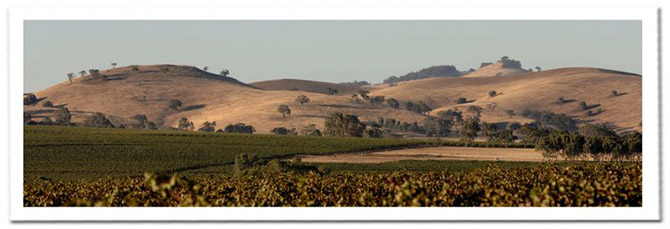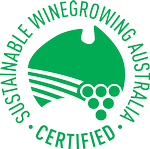Sustainability

By definition, sustainability never ends.
At Langmeil, it means being able to do tomorrow what we do today.
Crafting sustainable wine is a holistic approach to viticulture, winery, and wine business practices that minimises our environmental impact, improves the social and economic performance of our businesses and communities, and fosters resilience.
Langmeil Winery Sustainable Production Practices:
Sustainability Certification
 Langmeil Winery and its Barossa Valley and Eden Valley vineyards are certified Sustainable Winegrowing Australia (SWA) members.
Langmeil Winery and its Barossa Valley and Eden Valley vineyards are certified Sustainable Winegrowing Australia (SWA) members.
SWA is Australia's national program for grape growers and winemakers to demonstrate and continuously improve their sustainability in the vineyard and winery through their businesses' environmental, social and economic aspects.
The program takes a holistic approach to managing, supporting and promoting sustainability. It fosters stronger relationships between growers, wineries and their regions. It also provides authority and confidence to customers, who receive reliable certified produce to address growing global consumer demand.
The Australian Wine Research Institute administers the program with governance, endorsement and active support from Australian Grape & Wine and Wine Australia. The program is modelled on global best practices and aligned to the United Nations Sustainable Development Goals, with progress towards these monitored annually.
Cover Crops
- Permanent swards in Langmeil Winery’s vineyards
- Protect the soil and prevent erosion
- Suppress weeds negating the need for herbicide and leaving the ground bare
- Provide nutrition
- Support integrated pest management by increasing biodiversity, supporting pest predators and providing a natural nutrient cycling system enhancing soil and vine health.
Grape Growers
- Langmeil Winery is supplied by family-owned grape growers, including ‘Environmental Champions of Barossa’ Sam Dahlitz, Evan Gobell and Anthony Scholz, and twelve of our grape growers are SWA-certified.
- Growers who have adopted the Barossa Grape & Wine Association’s ‘Creating Resilient Landscapes in Barossa’ strategy.
Grape Marc
- Distilled for ethanol with the seeds used in grapeseed oil products
- Residual waste converted into garden mulch with the stalks composted
LED Lighting
- Replacement of traditional lighting with LED lighting at Langmeil Winery
- Free of harmful gas
- Energy efficient
- Last up to ten times longer
- Up to 90% less heat reducing cooling needs
- Estimated annual energy saving 14,814 kWh
- Estimated carbon abatement 17,777 kg
Packaging
- Barossa bottle 23% lighter than the previous bottle
- Removes 2.04 kg of glass per dozen bottles from the supply chain
- Saves an estimated 100g of CO2 emissions per bottle from packaging production and transportation
Solar Power
- Installation of a 99.12 kW solar system at Langmeil Winery
- Renewable energy source
- Estimated reduction in total grid power consumption 62.2%
Wastewater
- 900,000L of rainwater storage to reduce the Langmeil Winery’s mains water usage
- Winery wastewater processed and treated for use as irrigation water
Watercourse Management
- Revegetation of the North Para River bordering Langmeil Winery
- Native habitat restoration via the removal of exotic woods and other weeds in the riparian zone and revegetation with native plants
- Decreased erosion through revegetation of banks and in-stream structures
- Improved water quality through reduced amounts of soil and nutrients flowing into the watercourse
- Healthy aquatic and land-based ecosystems
- Decreased insect pest damage to pastures and crops by providing habitat for insect-eating birds and insect parasites
- Wildlife corridors
